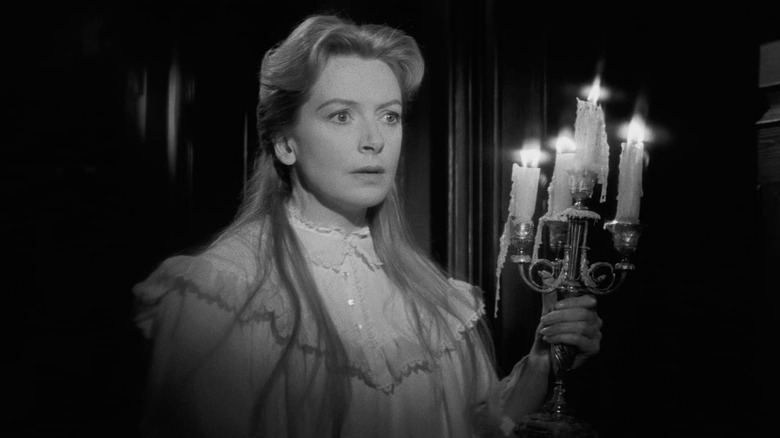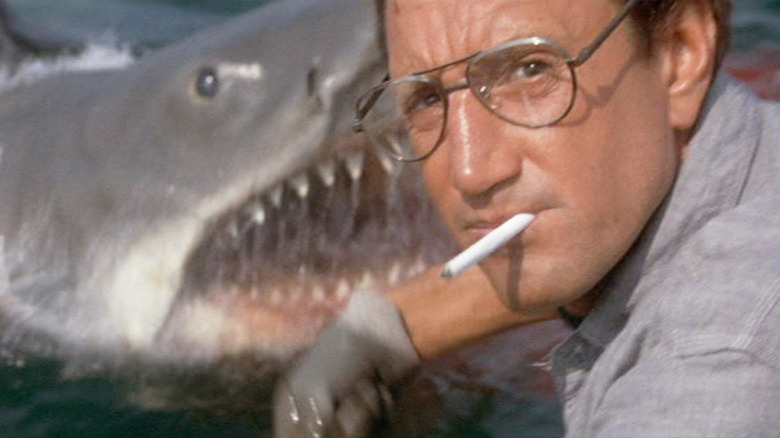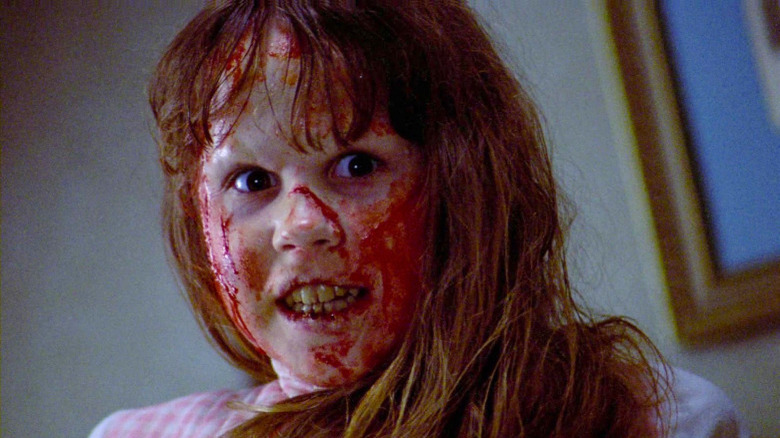These Are Guillermo Del Toro's Favorite Horror Films Of All Time
Watch enough movies directed by Guillermo del Toro, and you will quickly notice two things: 1) The "Pan's Labyrinth" and "Nightmare Alley" filmmaker loves monsters, ghosts, and other fantastical beings, no matter how threatening they are, and 2) There's nothing scarier to him than the living.
Fittingly, these tenets also hold true for del Toro's personal top five horror movies, which he revealed in an interview with Wired in 2015. The first two titles he listed — Robert Wise's 1963 film "The Haunting" and Jack Clayton's 1961 film "The Innocents" — are both psychological horror movies which, like the books that inspired them ("The Haunting of Hill House" and "The Turn of the Screw"), unfold from the point of view of people residing in spooky old manors that may or may not be haunted. Because it's never clear how much of the supernatural activity in these movies is real and how much is being imagined by their protagonists, it's hard to say tell which poses the greater danger: The alleged ghosts or the main characters themselves.
However, as with del Toro's supernatural horror film "The Devil's Backbone" and especially his gothic horror-romance "Crimson Peak" (which "The Innocents" heavily influenced), these aren't simply movies about how living people suck and ghosts are Okay, Actually. Instead, "The Haunted" and "The Innocents" invite you to deeply empathize with their unreliable "narrators," much in the same way del Toro always takes the time to flesh out the characters in his own films — be they noble heroes, despicable villains, or misunderstood creatures of the night.
Monsters, Chainsaws, and Human Greed
The next two horror films on del Toro's list — 1979's "Alien" and 1975's "Jaws" — combine B-movie plots with perhaps del Toro's favorite themes as a storyteller: The value of disobedience and the ways people suffer at the hands of those with power over their lives. "Alien," of course, features one of the all-time great movie monsters (the Xenomorph), but it's also a film about a group of futuristic blue-collar workers who fight back after being unknowingly tasked with a mission that their bosses are aware will likely get some (if not all) of them killed. As terrifying as the Xenomorph is, it's got nothing on human greed in Ridley Scott's sci-fi nightmare.
Greed is also at the heart of Steven Spielberg's "Jaws," a movie in which the story's hero comes to see the error of their ways (but at a terrible cost to others) and tries to make things right after kowtowing to the interests of a mayor more worried about his town's economy than the safety of the people who elected him. Like del Toro, Spielberg treats the non-human monsters in his films with a mix of awe and fear, and "Jaws" is no exception. Even during the famous underwater cage scene, the movie's shark is often shot in a way that makes it seems as majestic as it is terrifying.
This brings up to the fifth and final title that del Toro listed: Tobe Hooper's 1974 horror classic "The Texas Chain Saw Massacre." It's not only the most stylistically realistic of the five horror films he mentioned but also the most grounded in terms of its plot, with not even a hint of the supernatural. After all, as Hooper (like del Toro) knew all too well, you don't need non-human monsters to scare moviegoers when you have people capable of committing terrible acts of violence at your disposal.
What Scares del Toro Has Changed Over Time
Interestingly, del Toro also gave an honorable mention to one other title: William Friedkin's landmark 1973 horror film "The Exorcist." As del Toro explained to Wired:
"I would say 'The Exorcist,' but 'The Exorcist,' when I was a kid, didn't do anything for me ... But then I became a parent, and it became incredibly scary."
You can see where del Toro's coming from. As someone who (it seems) has always loved supernatural creatures, a horror movie where the Big Bad is a demon probably didn't unnerve the filmmaker earlier in his life — not even when he was a young adult with a firmer grasp on its themes about faith and its disillusioned outlook on the state of the world. But as someone with kids? A film like "The Exorcist," where a parent is left helpless to protect their child from being attacked from within by some unknown force, is just about your worst nightmare.
Even then, up to a certain point in its first act, "The Exorcist" leaves room for doubt as to whether a demonic entity is truly responsible for the mysterious events in its story. Or, as del Toro said to close out his list:
"The truth in [our] world and what we need to understand is the horror is all too human. You have to fear the living more than the dead."


